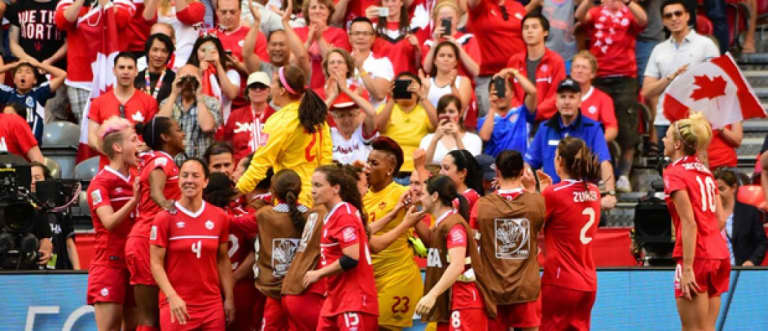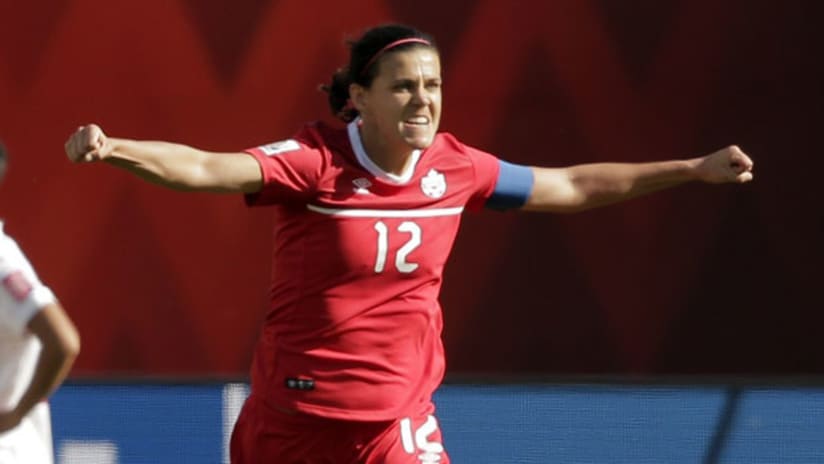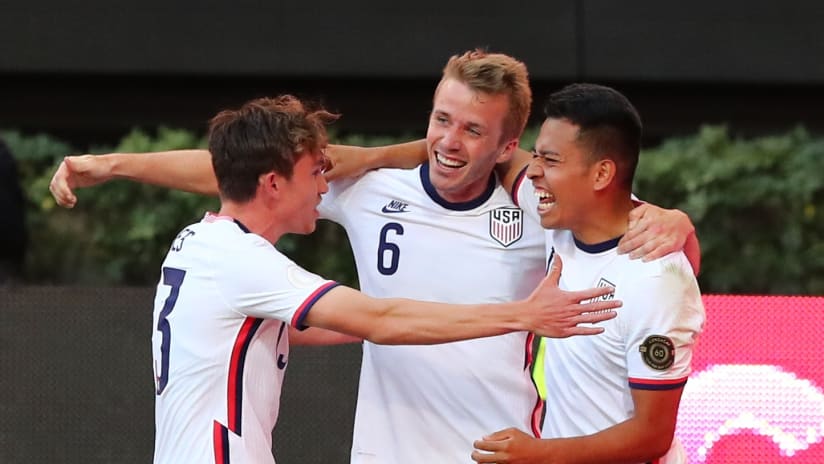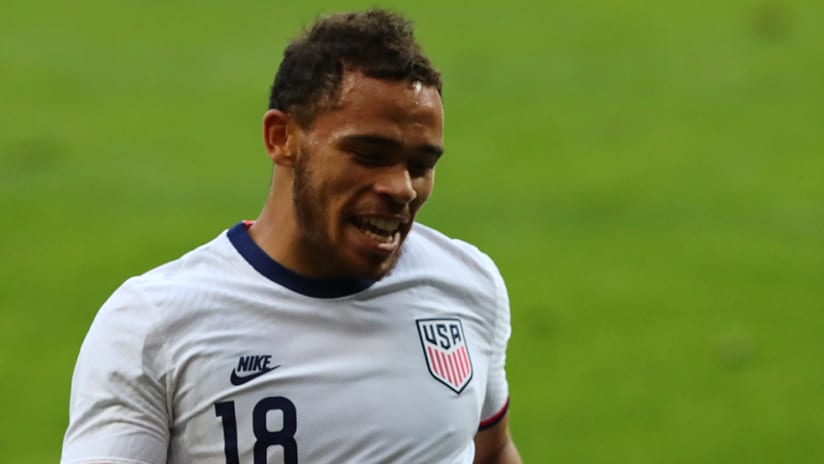Christine Sinclair and Diana Matheson are back. Coach John Herdman is back. This is the Canadian team everyone remembers from the 2012 Olympics, right?
Not by a long shot.
Sinclair (top scorer at London 2012 with six goals), Matheson (medal-winning goal in the third-place game against France) and Herdman (under contract to manage Canada though 2020) will, indeed, all be at the forefront of Canada’s efforts to build on the unexpected bronze medal the team captured four years ago.
But this year’s team comes into the Olympics with radically different circumstances, expectations and – perhaps most importantly – personnel.
A quick flashback: Herdman was hired in 2011 to scoop up the wreckage of Canada’s last-place finish at that year’s FIFA Women’s World Cup. Only months later, the team claimed gold at the Pan American Games.
Then, at London 2012, the goal-scoring duo of Sinclair and Melissa Tancredi grabbed the tournament by the scruff of the neck, combining for 10 of the team’s 12 goals in six games played.

Soccer fans already knew Sinclair as one of the greatest players in the world – and she cemented herself in the minds of general Canadian sports fans with her hat-trick performance in the scintillating semifinal loss against the United States.
Just days after that physically and emotionally draining extra-time encounter, Canada found themselves being played off the park by a French team that, at the 2011 World Cup, had danced to a 4-0 win.
On the day, though, a Canadian defense anchored by goalkeeper Erin McLeod kept France at bay long enough to allow a last-minute goal from Matheson that gave Canada its first Summer Olympic medal in a traditional team sport since 1936.
Few saw the podium finish coming, especially under a new coach inheriting a roster that had just flamed out at a World Cup.
Now, however, Herdman can’t fly under the radar (he’s perhaps the most well-known and marketed member of the team besides Sinclair). Nor can he point to a previous regime. He’s spent four years remodeling and rebuilding the squad to perform at big moments such as these Olympic Games.
Only six players from the London team remain: Sinclair, Tancredi, Matheson, midfielders Desiree Scott and Sophie Schmidt, and defender Rhian Wilkinson.
In fact, of Canada’s 18-player Olympic squad, a half-dozen have truly only become national-team regulars in the last 12 months, following the 2015 World Cup.

Sinclair will still wear the captain’s armband in Rio, and will admirably continue her pursuit of
Abby Wambach
’s all-time goals record (184, compared to Sinclair’s 162). But after a decade as Canada’s foremost (read: only) attacking threat, the 33-year-old has transitioned into also being a provider for her younger teammates.
She’ll be looking to connect with Janine Beckie (age 21), Nichelle Prince (21) and Deanne Rose (17), all of whom bring speed and width, as well as finishing ability.
Tancredi, who was away from the team for two years while finishing her degree, will be a depth option, for times when her size and strength can come in handy.
While Canada have options in attack, goalkeeping will be a bit of a question mark. McLeod, one of the game’s finest goalkeepers, is out with a long-term ACL injury, while veteran Karina LeBlanc retired following last summer’s World Cup.
Thrust into the starter’s role is 29-year-old Stephanie Labbé, a long-time understudy of both McLeod and LeBlanc. Behind her is 23-year-old Sabrina D’Angelo, who has only two senior caps and is recovering from wrist surgery earlier this summer.
In front of Labbé will be a young defensive group led by 20-year-old Kadeisha Buchanan, who has already amassed 58 senior caps and won the Best Young Player Award at the 2015 Women’s World Cup.

She’ll be joined in the defensive ranks by a pair of relatively recent converts to the fullback position:
Josée Bélanger
, who went from striker to right back last year, and
Ashley Lawrence
, who has gone from midfield to left back in just the last few months.
One wild card for Canada: 18-year-old midfielder Jessie Fleming, who has been under the microscope since joining the senior team two years ago. She’s a speedy, clever midfielder who could make her big-tournament breakthrough.
The Canadians kick off on Wednesday against Australia, who are still riding the high of a solid run to the 2015 World Cup quarterfinals. Then comes a de facto must-win over Zimbabwe (Aug. 6) and a daunting group-stage finale against Germany (Aug. 9), whom Canada have never beaten.
This is a transitional Canadian team looking to peak during the 2019/2020 cycle, one that bears little resemblance to the squad that poached bronze in London. Yet the podium isn’t out of the question in Rio, either.
One group-stage win will likely be enough to reach the quarterfinals in this small, 12-team tournament. From there, a favorable quarterfinal draw against the likes of China or Sweden could put Canada exactly where they were four years ago: in a semifinal, needing one win in two games to clinch some hardware.
Many Canadians will be hoping for a knockout-stage rematch against the United States, which, given the tournament format, could come in the quarters, semis or final. (Or, of course, not at all.) While that would surely produce plenty of drama and juicy narratives, the historically lopsided nature of the cross-border rivalry hardly makes it an ideal matchup for Herdman’s side.
Ultimately, the team’s fate will rest – as it did four years ago – on their capacity to adapt, to finish chances when they arise, to deal with injuries and to benefit from once-in-a-lifetime performances from key contributors.
The likes of Sinclair, Matheson and Herdman became household names after London. If Canada are to return to the Olympic podium, they’ll need a few more household names to emerge in Rio.













